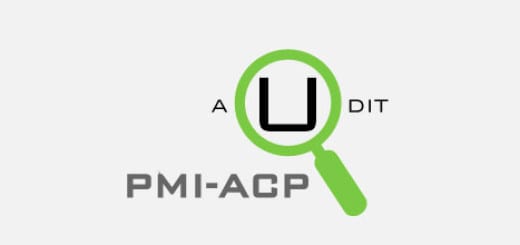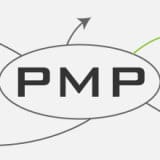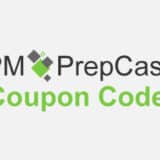PMI-ACP Exam Experience Sharing by Alex Matulich
The experience of Alex Matulich told us that the questions on the actual PMI-ACP Exam now consist of mostly situational questions.

Here comes another PMI-ACP® exam experience sharing who took the PMI-ACP® Exam after the 2015 update (from 15 July 2015 onwards) for Aspirants to understand the new exam syllabus and the impact of the changes. The experience of Alex Matulich told us that while the currently available PMI-ACP® Exam prep courses and books are enough for the new PMI-ACP® exam, the questions on the actual PMI-ACP® Exam now consist of mostly situational questions (i.e. describing a situation and asking the candidate to choose the best next course of action, etc.). Aspirants should take note of this while preparing for the PMI-ACP® Exam!
PMI-ACP® Exam Experience Sharing by Alex Matulich
Alex Matulich, PMP, PMI-ACP®, attempted the PMI-ACP® Exam on 30, October 2015 based on the new PMI-ACP® Exam syllabus. He passed with 2 Moderately Proficient and 5 Proficient. Below is his PMI-ACP® Exam experience sharing:
The PMI-ACP® Exam prep class I took in 2013 included the PMI-ACP® Exam Prep Book by Mike Griffiths. The first thing I did was go through all the practice tests without reading the book to establish a baseline score for myself. Then, on a weekend when I had at least 2 hours of time, I would go through one of the chapters and re-take the practice test at the end of the chapter.
Work and other commitments intervened. I hadn’t made much progress studying and figured I would give myself some motivation by scheduling my exam, which I attempted to do in 2014 — and my application was randomly chosen for an audit by PMI. That didn’t bother me, I was honest about the experience I documented, and PMI made it pretty easy with pre-filled-in forms to send to my managers at previous jobs (I was a consultant/contractor). After passing the audit, PMI would give you a year’s period to take the exam. I took mine on October 30, 2015, the last day of the window.
Before I took the exam, I planned weekends to finish up the Mike Griffiths’ book, but after trying some online practice tests, I didn’t feel confident, and I felt I needed more. So I found an old copy of Andy Crowe’s “The PMI-ACP®: Pass on your first try” book in a library, and went through that cover to cover, 1 week before my exam. That’s a good book. It assumes you already know Agile, it’s very approachable and readable, and distills the broad topic of Agile project management down to the bare essence of what you need for the exam. I took the book with me to the exam centre, got there early, and reviewed some problematic areas before the PMI-ACP® exam started.
And then, the real PMI-ACP® exam took me by surprise with all the situational questions. I was unaware that it had changed, no longer resembling any of the practice questions I took. To be sure, those practice tests did help. But my prep class, and Griffiths book, was 2 years ago, and the Crowe book from the library was even older. I am sure the newer editions are more representative of the actual exam. I must say the exam I took had NO resemblance whatsoever to the PMI-ACP® practice questions you can find online. Everything you find online tests you on your knowledge of facts. The PMI-ACP® has changed. All of the questions (except for 2 about burn-down charts) were scenario-based questions: “Here’s a situation, what do you do?” and most of the time two of the choices were equally plausible, and NOT what I would do in real life. I really had to concentrate on what I knew about Agile processes and tools, and how they applied to the given situation.
Instead of testing you on your knowledge of Agile facts, the PMI-ACP® exam ASSUMES you already know the facts and instead tests you on the APPLICATION of those facts to real situations. This took me by surprise, and while I finished the exam in 1.5 hours, I used the full 3 hours to complete it, changing maybe 15 of my answers as I went through the exam repeatedly.
So all in all, I had about a dozen Saturdays of studying scattered over 2 years, concentrated somewhat toward the end, with a couple of dedicated days before taking the exam. I believe my studying contributed to 50% of my passing score, and my professional experience contributed the other 50%. I recommend to anyone about to take the exam: Get up-to-date study materials. Yes, it helps to do the practice questions online, but understand that the actual exam will test you on scenarios.
In the end I passed with two “moderately proficient” areas with the rest “proficient”, which pleased me — that was better than I did on my PMP exam in 2009.
Thanks Alex for sharing his exam prep story to us which is believed to be very useful to Aspirants!
Most Popular PMI-ACP Certification Articles
- Top 10 Tips to Prepare for the exam (I got all Proficient in my exam)
- How to Get 21 Contact Hours?
- Over 600+ FREE Quality Mock Exam / Practice Questions





 Hi, my name is Edward Chung, PMP, PMI-ACP®, ITIL® Foundation. Like most of us, I am a working professional pursuing career advancements through Certifications. As I am having a full-time job and a family with 3 kids, I need to pursue professional certifications in the most effective way (i.e. with the least amount of time). I share my exam tips here in the hope of helping fellow Certification aspirants!
Hi, my name is Edward Chung, PMP, PMI-ACP®, ITIL® Foundation. Like most of us, I am a working professional pursuing career advancements through Certifications. As I am having a full-time job and a family with 3 kids, I need to pursue professional certifications in the most effective way (i.e. with the least amount of time). I share my exam tips here in the hope of helping fellow Certification aspirants!





